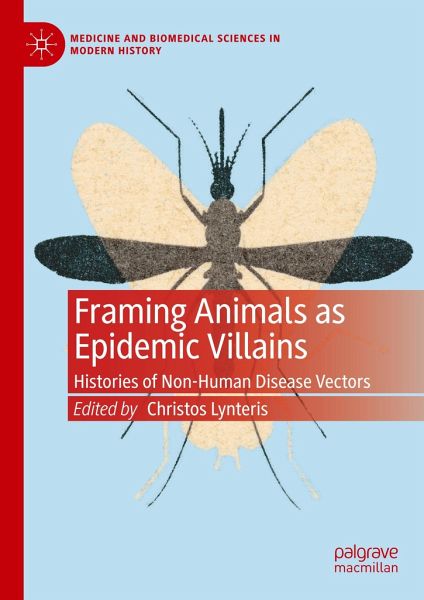
Framing Animals as Epidemic Villains
Histories of Non-Human Disease Vectors
Herausgegeben: Lynteris, Christos

PAYBACK Punkte
53 °P sammeln!
This book takes a historical and anthropological approach to understanding how non-human hosts and vectors of diseases are understood, at a time when emerging infectious diseases are one of the central concerns of global health. The volume critically examines the ways in which animals have come to be framed as 'epidemic villains' since the turn of the nineteenth century. Providing epistemological and social histories of non-human epidemic blame, as well as ethnographic perspectives on its recent manifestations, the essays explore this cornerstone of modern epidemiology and public health alongs...
This book takes a historical and anthropological approach to understanding how non-human hosts and vectors of diseases are understood, at a time when emerging infectious diseases are one of the central concerns of global health. The volume critically examines the ways in which animals have come to be framed as 'epidemic villains' since the turn of the nineteenth century. Providing epistemological and social histories of non-human epidemic blame, as well as ethnographic perspectives on its recent manifestations, the essays explore this cornerstone of modern epidemiology and public health alongside its continuing importance in today's world. Covering diverse regions, the book argues that framing animals as spreaders and reservoirs of infectious diseases - from plague to rabies to Ebola - is an integral aspect not only to scientific breakthroughs but also to the ideological and biopolitical apparatus of modern medicine. As the first book to consider the impact of the image of non-humandisease hosts and vectors on medicine and public health, it offers a major contribution to our understanding of human-animal interaction under the shadow of global epidemic threat.













